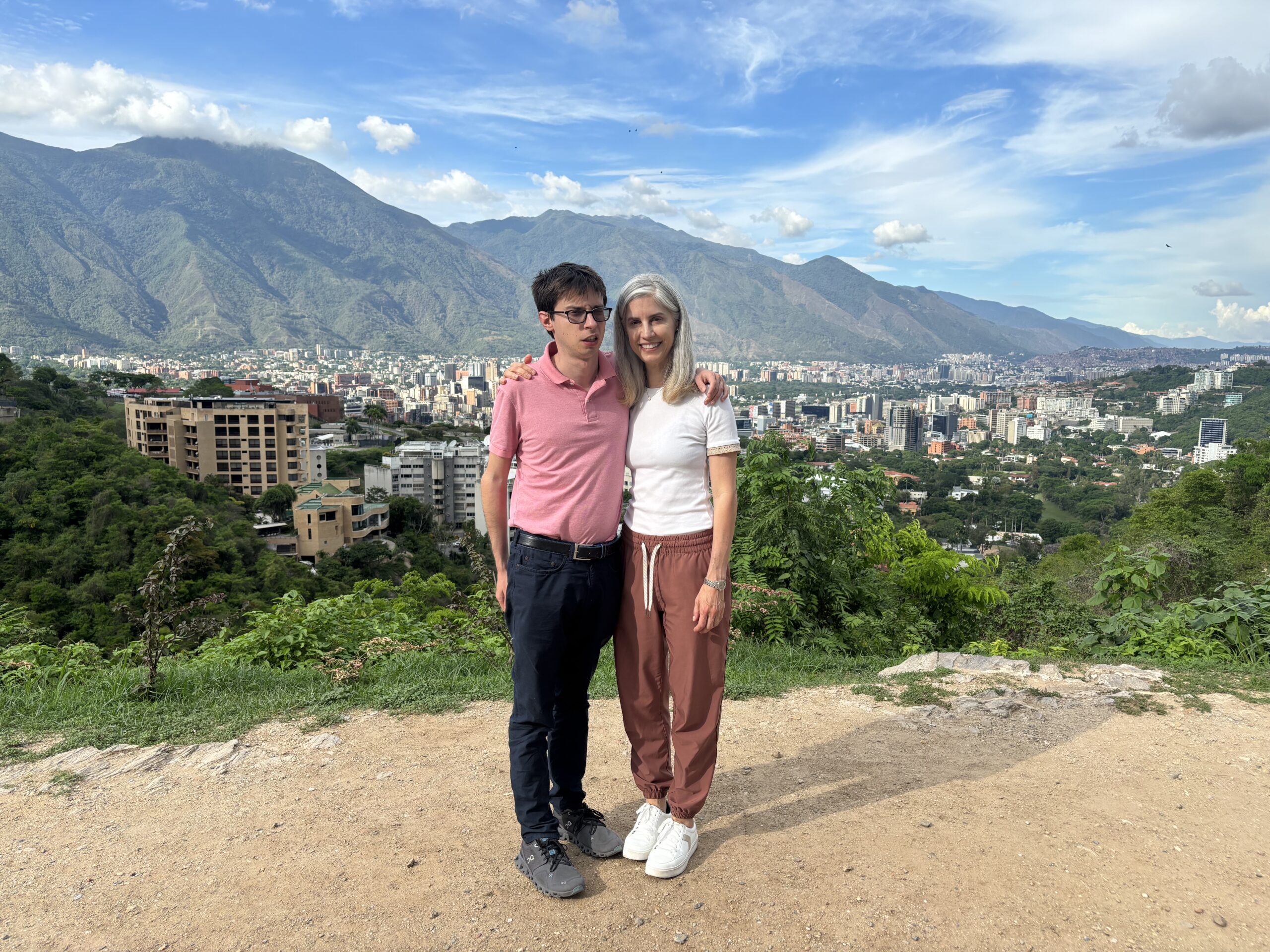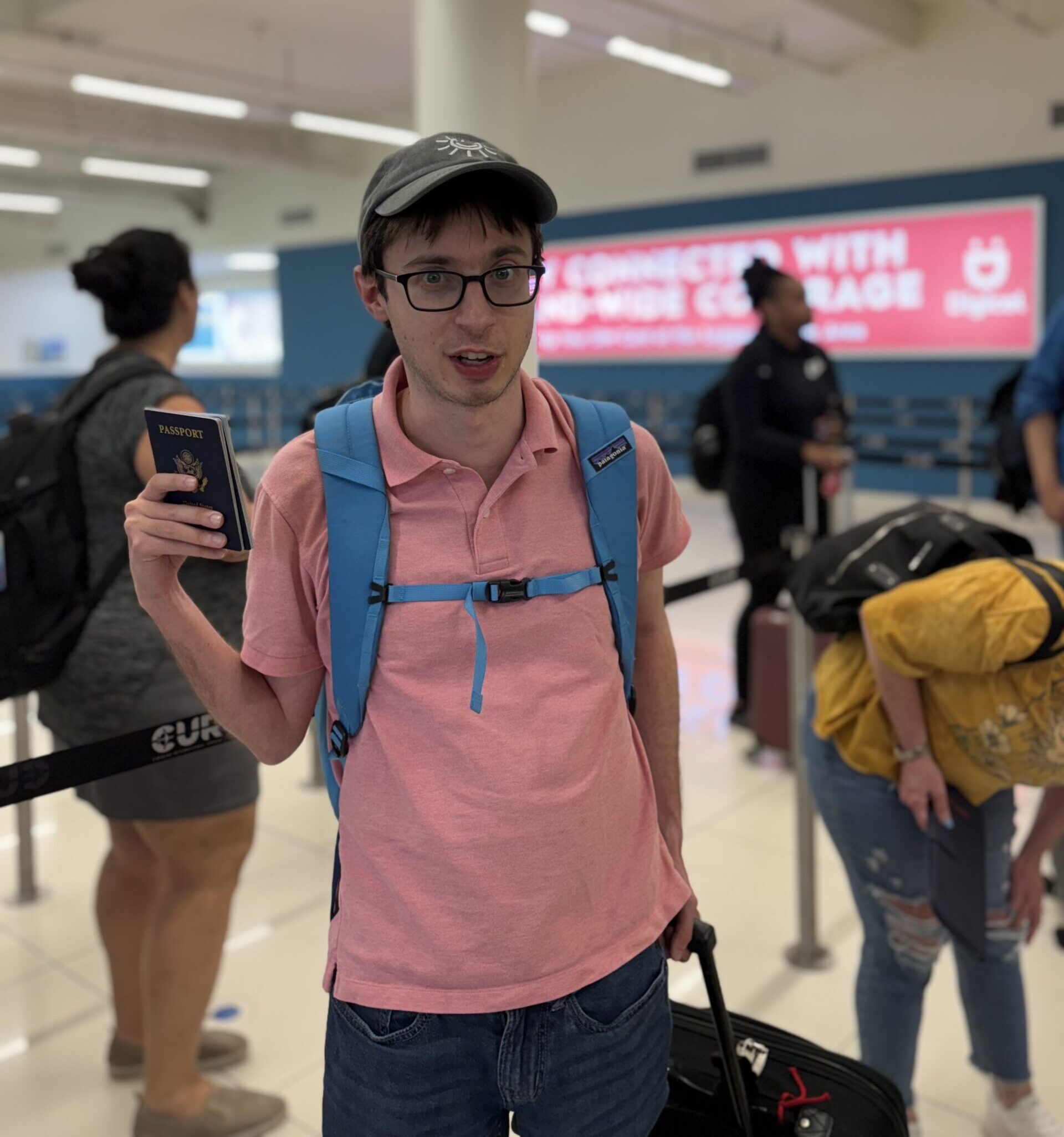
Sometimes I want to quit society and go live in Tristan da Cunha. Why? Because it’s the remotest island in the world, the farthest one from any continent. There, I wouldn’t be assaulted with paperwork from the various agencies my 31-year-old son Diego depends on for funding due to his autism and intellectual disability.
I wouldn’t need to oversee the three staff supporting him, find new people when existing staff move on from this work, worry about keeping Diego meaningfully occupied for enough hours in the day, or even ensure his hair is combed, his face shaven, and that he doesn’t wear the same shirt every day.
Diego and I would go on long daily hikes in our island home. We would tend a garden, look through books, and watch nature documentaries and Disney movies. We would get to know and be friendly with every one of the island’s 250 inhabitants. We would forget about deadlines and bureaucracies and lead happy, simple lives.
The problem is that Tristan da Cunha does not allow outsiders to buy land or settle on the island.
Besides, deep down, I know we’re fortunate to live where we live. I love my Connecticut town and having my family nearby. And, as much as Diego would love my undivided attention, he would miss his Abuela, Tías, and cousins. He would want to see his friends, go to the movies, and occasionally take the train to New York City to visit the American Museum of Natural History.
When I’m overcome with the notion that I’d be happier on the world’s remotest island, what I really need is a break, and, to me, travel is the best kind of break there is. The change of surroundings and distance from home helps me gain perspective, be more present, and notice the good, different and beautiful in my human world.
Diego, my mother and I recently traveled to Venezuela, where I’m from, to visit family. The magic of travel began at the airport, in the form of a stranger. I was at the store near our gate trying to pay for some snacks, but my Apple Pay card wouldn’t work.
“Let me get another credit card,” I told the clerk, bending down to retrieve my pocketbook from my backpack. Turns out my backpack had at least thirteen different compartments and I didn’t remember which one I’d stuck my pocketbook in. So, as I sweated and struggled to find it, thinking I might have lost it or left it at home, someone swiped a card and paid for my 25-dollar purchase. I stood up to find a tall, very pretty Black woman with wavy, long hair standing there.
She gave me a kind smile and said, “Don’t worry about it.”
Angels indeed live among us. I hugged my angel and told her I would pay it forward. Double.

Travel removes us from our everyday life and environment, resetting us and helping us see that many of our worries are overblown and that a good number of our mistakes are more solvable than we initially think. As Seneca the Stoic said, “We suffer more in imagination than in reality.”
I suffer from fear of flying and have been working on being brave and not medicating myself on flights. Our flight to Curaçao, where we’d catch our connection to Caracas the next day, was close to five hours long, and the first three were not smooth. This was my fifth flight unmedicated, which meant I had to get up to use the bathroom several times, especially when the ride turned bumpy.
As I always do on these bathroom trips, I checked on the flight attendants’ demeanor, and was reassured to find one reading a book and the other playing a game on his phone. Even though the fasten-seatbelt sign was lit, they weren’t even buckled in! They looked almost bored actually.
I told the one reading that I was mighty scared of flying and asked if she thought the airplane was bouncing too much.
She looked at me kindly and said, “Oh no. I assure you, it’s just a bit windy out there. It’s nothing.”
I felt better.
We made it to Curaçao safely, of course, cleared customs, collected our bags, and spent a lovely afternoon in Willemstad, the nation’s capital.
We did face a little travel scare the next day, although it happened on solid ground. At the airport checking in for our flight to Caracas, the lady at the counter couldn’t locate my mother on the passenger list. (It was a physical list, a printout.)
“She has to be there. I’m sure,” I insisted. Only when I retrieved the reservation on my phone did I realize I’d booked for the wrong day. I instantly panicked: Oh no! What are we going to do?
The lady quickly reassured us.
“Don’t worry. We’ll get you in,” she said to me in English, proceeding to poke fun at our situation.
“Your daughter wanted to leave you behind,” she said to my mother in Spanish. In Curaçao, everyone we encountered spoke Dutch, Spanish, English and Papiamentu.
The $131 penalty we had to pay for my mistake struck me as insignificant.
Two hours later, we boarded the clearly very old plane (judging from the absence of screens and ancient leather seats) that would fly us to Caracas. Thankfully, the 45-minute flight was perfectly smooth.
Travel also gives us a fresh look at what we don’t ordinarily notice. Diego sometimes interjects Spanish words or phrases here and there when he speaks. Well, in Venezuela, the Spanish language area of my son’s brain lit up and stayed on all the time. He seemed to be trying to speak English and Spanish at the same time, which was impossible of course.
He’d constantly go back and forth within sentences, as if he did not have a dominant language. Given that family members and friends would address me instead of Diego when they wanted to know something about him, I gather people just couldn’t understand what he said. Although I know no one was truly at fault, I admit I was a bit annoyed, both at Diego (for speaking like that) and at people (for not making a greater effort).
To my dismay, the moment we set foot on American soil, he went back to mostly English, and to addressing strangers in his preferred script: “Hi. I’m Diego. I’m from Greenwich. Where are you from?”
Every trip with Diego also reminds me that my son is happiest when we spend most of our time together—something that naturally happens when we’re away from home. I believe this is why, unlike many others on the autism spectrum, he has always loved to travel.

